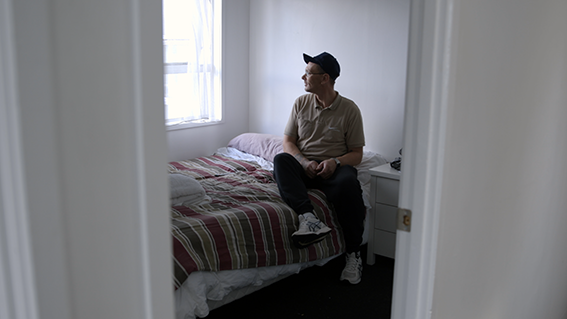Setting prisoners up for failure
By Sharon Bretkelly, The Detail
24 July 2023
“They’ve done their time, paid for their crime and then they come out and they do another sentence. It’s called a silent sentence.”
Tui Ah Loo is talking about the difficulties people face when they’re released from prison.
“It is the sentence of judgement, stigma and bias.”
As te tumu whakarae or chief executive of a prisoner reintegration agency, Te Pā, she sees how society reacts to them – the NIMBYs (not in my back yard) and NOTEs (not over there either).
Finding housing is the biggest struggle, Ah Loo says, exacerbated by the housing crisis but also the stigma of being an ex-prisoner or deportee.
She’s talking to The Detail about what it is like for prisoners when they are released, following a report called Paying the Price. It says that inmates not only face barriers to reintegration when they leave, but they also take big problems into prison, such as financial debts, which grow during the term of their sentence.
The author of the report, Victoria University senior law lecturer Victoria Stace, says the debts range from unpaid taxes and child support to unpaid phone bills. Without anyone to do a checklist of what they owe at the start of their sentence, most prisoners leave them unpaid – only to face bigger bills when they are released.
Stace says it is difficult for prisoners to access their bank accounts, if they even have one, because they do not have internet or personal phones.
“You can send a letter by regular post. That is the most common way that we know of that most (prisoners) try and contact their bank.”
The report recommends the creation of a universal number that prisoners are allowed to use that links them to their bank or a central point where they can sort out their debts.
Stace is also calling for the banks, government and prisons to work together to enable prisoners to set up bank accounts before they are released.
Without a bank account they cannot immediately get a benefit, she says.
“Some financial mentors said if they can’t get their benefit straight away, that’s a real problem because they need an income and if they’ve got no income, their options are very limited.”
A number of agencies operate around the country, helping prisoners with accommodation, work and other life basics. Ah Loo explains how Te Pā – which is 90 percent government-funded, 10 percent philanthropy – interviews prisoners before they leave.
“So on their release day we’re there picking them up and that service provides them with immediate need on release, food, clothing, shelter,” she says.
Te Pā works with about 1,000 short- and long-term prisoners a year, giving them a place in a home that the agency owns or rents.
“We will navigate them over the next three months, sometimes longer, could be six months, could be a year, until they feel strong enough to go out on their own,” she says.
“We’re providing them with all the basic things they need to transact in society. Things you and I take for granted. Bank accounts, IRD numbers, driver’s licence, benefits and then accommodation.”
Without the “tools” says Ah Loo, they “cannot transact in society”. But it’s housing and work that are the two lynchpins of a successful reintegration into society.
Former 501 deportee turned podcaster David Obeda says emergency accommodation is the only option for many prisoners sent back to New Zealand because they have no connections.
“It’s almost impossible in that emergency housing because you’re just surrounded by people on drugs.”
That means many people who want to rehabilitate will end up on the street or in a gang house.
Listen to the full episode for a better insight into the issues facing just released prisoners.

